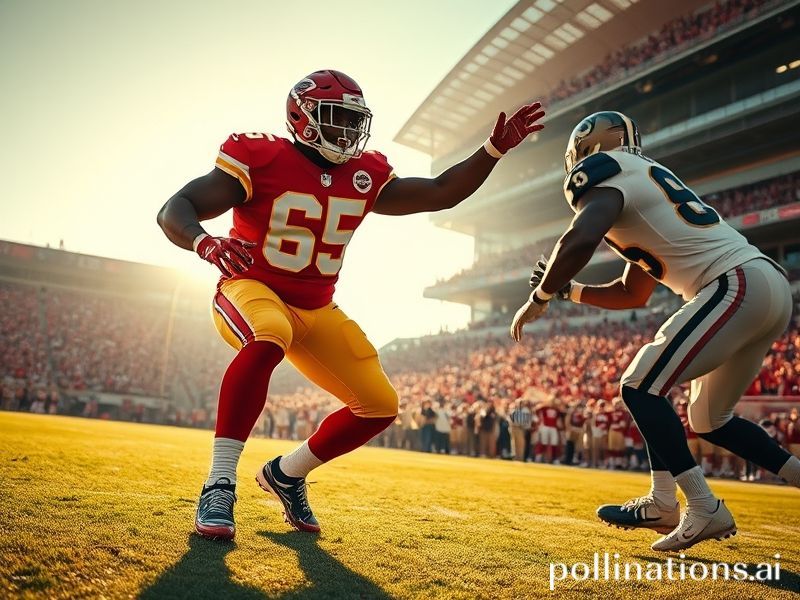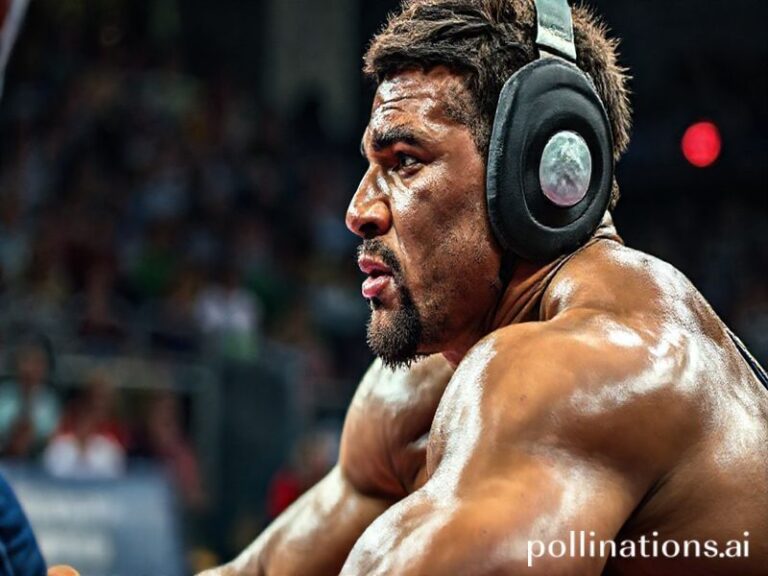Global Games: How Jawaan Taylor Became an Unlikely Ambassador in Football’s Worldwide Circus
**The Global Offside: How Jawaan Taylor Became Football’s Reluctant Diplomat**
In the grand theater of American football—where grown men in spandex ritualistically collide for the entertainment of millions—few stories capture the absurd ballet of globalization quite like that of Jawaan Taylor. The Kansas City Chiefs’ offensive tackle has unwittingly become an international symbol of something much larger than himself: the beautiful, terrible machinery of modern sport that transforms human beings into chess pieces on a board stretching from Miami to Mumbai.
While Taylor battles defensive ends on autumn Sundays, his performance ripples through the global economy like a stone dropped in a very expensive pond. Consider the international supply chain behind a single NFL game: Mexican-manufactured jerseys, Chinese-produced electronics for instant replay, German-engineered cameras, and South Korean betting apps—all converging on a patch of grass where Taylor’s ability to protect his quarterback influences everything from Las Vegas odds to London pub conversations.
The irony, of course, is delicious. Here stands a man from Cocoa, Florida, whose footwork against the pass rush affects the quarterly earnings of multinational corporations. When Taylor false-starts, stock prices in three continents experience micro-fluctuations. When he pancakes a defender, fantasy football enthusiasts in Singapore celebrate while their counterparts in São Paulo curse in Portuguese. It’s globalization’s ultimate prank: making the local universal and the universal local, all through the medium of large humans playing a children’s game.
But Taylor represents something more profound in our fractured world—a living testament to the strange unity of human spectacle. While diplomats struggle with trade agreements and climate accords, sports operates as perhaps our last functioning international language. When Taylor sets up in his stance, he’s speaking a dialect understood from Lagos to Lisbon: the universal tongue of competition, drama, and the eternal hope that this play, this game, this season might be different.
The dark humor lies in what we’ve made of this simplicity. Nations that can’t agree on human rights have no problem agreeing that a touchdown is worth six points. Countries threatening each other with nuclear weapons will simultaneously cheer for the same spectacular catch. Taylor, meanwhile, just wants to do his job without getting his quarterback killed—unaware that he’s become a tiny cog in the great machine of global capitalism, where every pancake block is monetized, analyzed, and converted into content for a world hungry for distraction from its actual problems.
His journey from a three-star recruit to Super Bowl champion mirrors our collective journey into this strange new world where geography matters less than market share. The same forces that elevated Taylor from relative obscurity to international recognition have also created a planet where a teenager in Bangladesh can know the Chiefs’ depth chart better than their own government officials, where fantasy football transcends actual fantasy, where we care more about a player’s PFF grade than their city’s poverty rate.
As climate change accelerates and democracy erodes, as the old certainties crumble like ancient defenses against Taylor’s bull rush, we find ourselves increasingly invested in these artificial dramas. They provide what reality cannot: clear winners and losers, definitive endings, the illusion that effort equals reward. In a world of gray, sports offers black and white. In an era of complexity, Taylor’s job is blessedly simple: protect the man with the ball.
Perhaps that’s the ultimate joke. While we search for meaning in the meaningless, Taylor just blocks. While we project our hopes onto his shoulder pads, he just blocks. While we make him a symbol of everything, he remains stubbornly, beautifully specific: a man doing a job, one snap at a time, in a world that’s forgotten how to value anything that can’t be televised, monetized, or turned into a meme.
In the end, maybe that’s enough. Maybe in an age of impossible problems, the honest labor of impossible physical tasks is the most honest thing we have left. Even if it’s just a game. Especially because it’s just a game.







